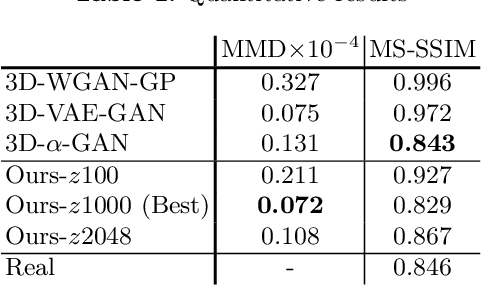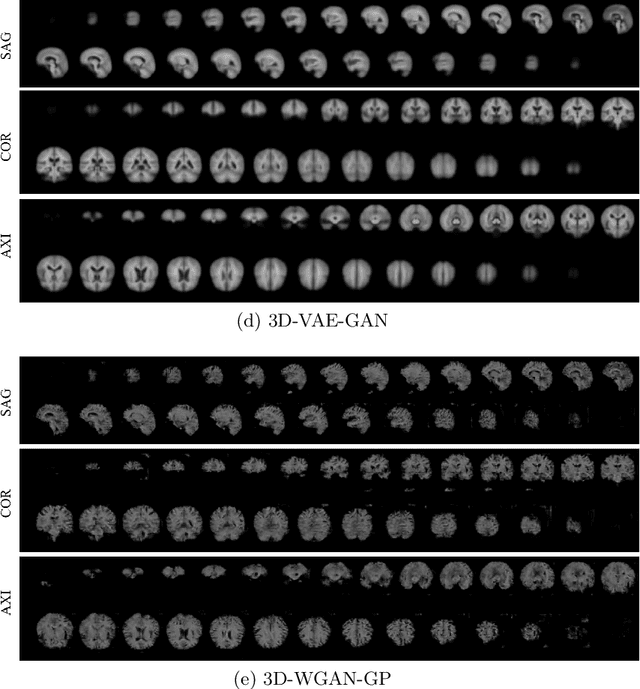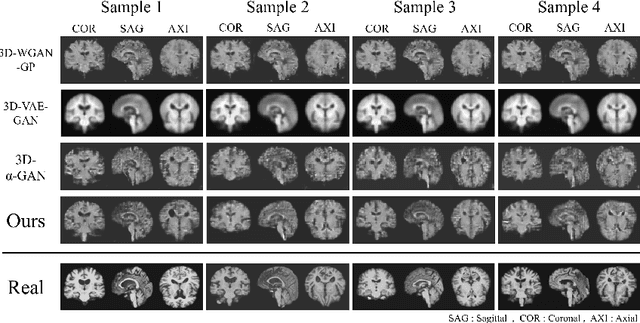Dae-shik Kim
Generation of 3D Brain MRI Using Auto-Encoding Generative Adversarial Networks
Aug 07, 2019



Abstract:As deep learning is showing unprecedented success in medical image analysis tasks, the lack of sufficient medical data is emerging as a critical problem. While recent attempts to solve the limited data problem using Generative Adversarial Networks (GAN) have been successful in generating realistic images with diversity, most of them are based on image-to-image translation and thus require extensive datasets from different domains. Here, we propose a novel model that can successfully generate 3D brain MRI data from random vectors by learning the data distribution. Our 3D GAN model solves both image blurriness and mode collapse problems by leveraging alpha-GAN that combines the advantages of Variational Auto-Encoder (VAE) and GAN with an additional code discriminator network. We also use the Wasserstein GAN with Gradient Penalty (WGAN-GP) loss to lower the training instability. To demonstrate the effectiveness of our model, we generate new images of normal brain MRI and show that our model outperforms baseline models in both quantitative and qualitative measurements. We also train the model to synthesize brain disorder MRI data to demonstrate the wide applicability of our model. Our results suggest that the proposed model can successfully generate various types and modalities of 3D whole brain volumes from a small set of training data.
 Add to Chrome
Add to Chrome Add to Firefox
Add to Firefox Add to Edge
Add to Edge